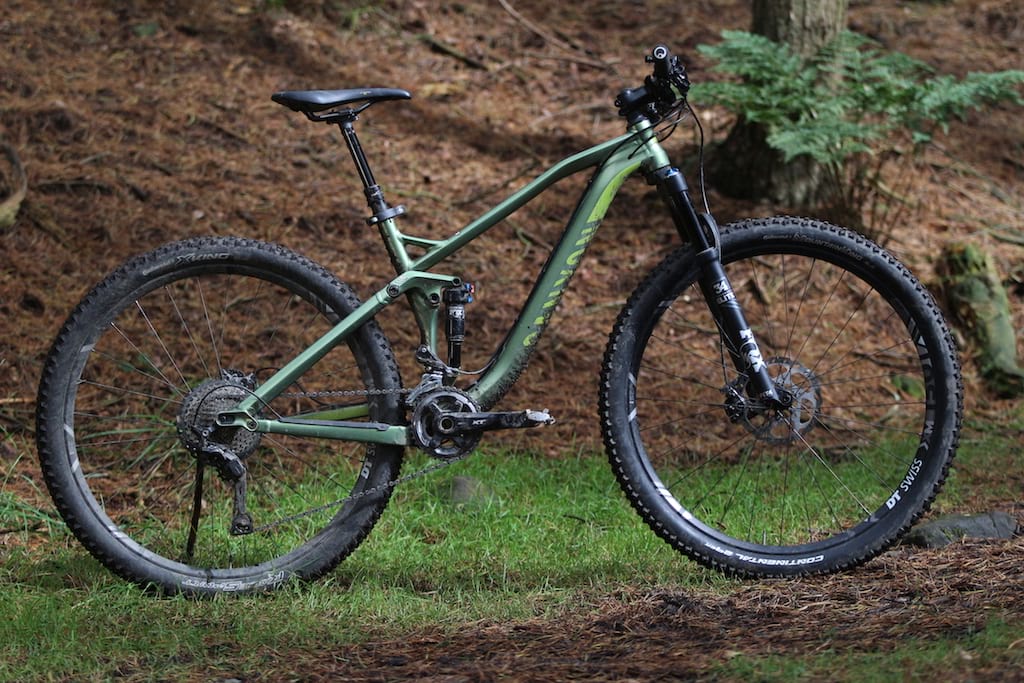Canyon is one of the most popular high-end bike brands out there, with its direct sales model offering an expansive range of top value bikes with quality build kits. The Neuron (the bike formerly known as the Nerve) is aimed at the sizeable group of riders who want something in between a full-on cross country race bike and a long travel enduro smasher.
I previously tested a budget build of the Nerve in its 27.5in incarnation, so I was keen to find out how much of a difference some bigger wheels and posher parts could make.

The Bike
There are a wide array of build kit options available with the Neuron’s alloy frame, with the 16-strong range kicking off at £1,199, and topping out at £3,599. The Neuron is available with 29in or 27.5in wheels, depending on what wheelsize sails your ship, and Canyon now offers women’s specific build kits for the 27.5in model too.
The Neuron AL 9.9 here features 29in wheels, and sits a couple of pegs down from the top-spec build, and retails for £2,649. The frame itself is available in Medium, Large and X-Large sizes, but if you’re on the shorter side, the 27.5in version goes down to size X-Small.

The 29er version of the Neuron gets 120mm travel up front and 110mm rear, courtesy of Fox’s Performance Series suspension units. The frame itself is as well finished as alloy bikes get, with tidy welds, neat detailing, and lots of exciting swoopy tube profiles. The green sparkly paint looks utterly gorgeous under sunlight, and has subtle graphics that don’t beg for attention, but catch it nonetheless. It’s also available in Canyon’s trademark understated black.

There’s stealth routing for the Reverb dropper post, and the back of the bike has decent tyre clearance and a 12mm through axle for stiffness. Less promisingly, there’s a press-fit BB and an integrated headset, two design features that can become troublesome over the life of a frame. Over a fairly short test period I had no problems with either, and given the high quality finish of the frame generally, if I’d expect any bike to stay creak-free, it’d be this one.

The parts on the Neuron are mostly drawn from Shimano’s Deore XT series, including the brakes, shifters and double crankset. All but one of the Neuron’s build options has a double crankset. If front mechs really are becoming extinct, then the German bike industry is their wildlife preserve. The 36/26t chainrings are paired to a sizeable 11-42T cassette, giving you a bottom gear that’ll let you ride up pretty much anything. The double combined with the dropper post gives the bike a generous helping of bar spaghetti, but it also means that, all other things being equal, the Neuron should have a longer, quieter drivetrain life than 1x bikes.

The latest generation of Shimano XT is the sort of stuff that collectors ought to be stockpiling in their garages – it works well, it looks great, and the dimpled alu shifter paddles make every gear change feel like you’re operating a piece of precision fun-generating machinery. The black cranks do scuff up quickly though, and could do with a bit of the protective tape that’s been applied to wear points on the frame. Your local shop mechanics will appreciate the external cabling, although it does look a bit fussy, and one of the little plastic clips that holds it all in place popped out, and is currently languishing by the side of a trail somewhere.

The Neuron is shod with sensible Continental rubber, with a Mountain King 2.4 up front and a faster-rolling X-King 2.4 on the rear. Wheels are DT Swiss and have a respectably wide 25mm rim, which comes ready taped for tubeless conversion – though the tyres’ thin sidewalls and lack of a tubeless compatible bead suggest you’ll need to budget for more than just valves and sealant if you’re planning to go that route. From stock, the Neuron comes with ultra-light inner tubes – a fact which you will probably become aware of as soon as you take the bike on rocky natural trails.
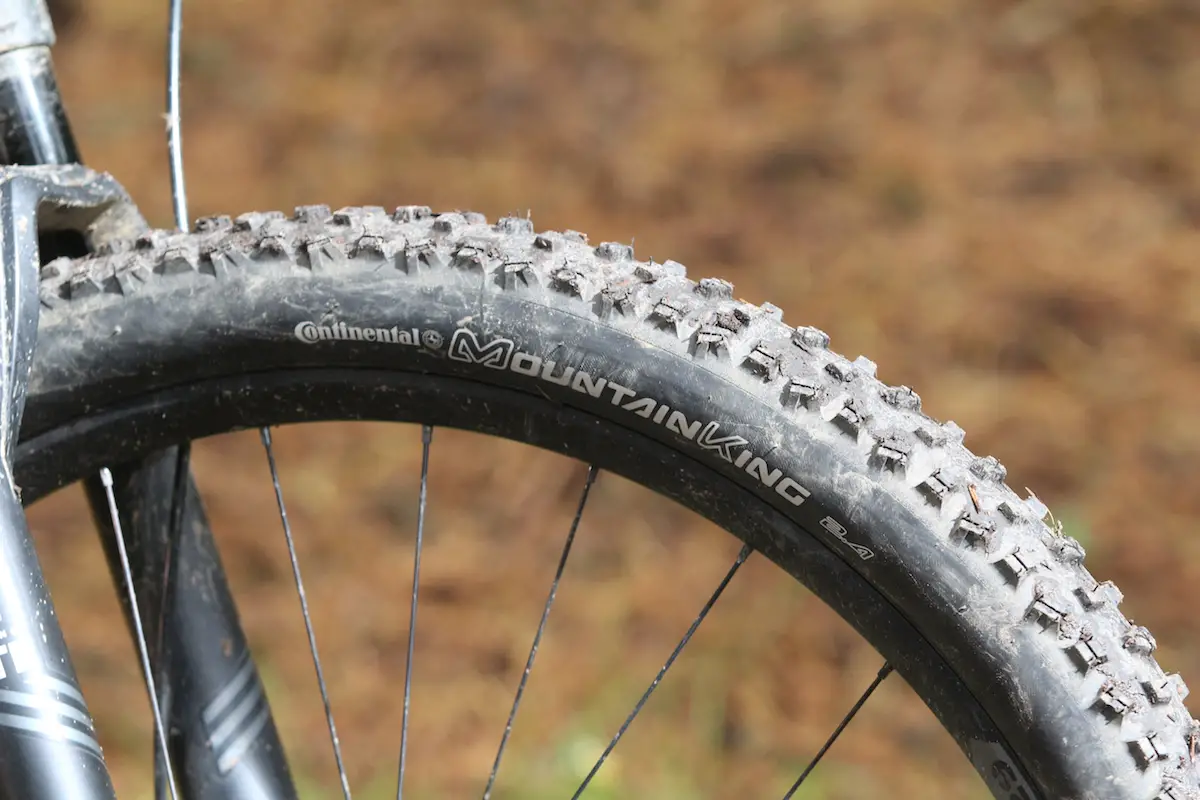
The high-end theme continues with the contact points. The Ergon grips are a less Marmite affair than the classic wing-shaped ones, and were firm but comfy. The Fizik Tundra saddle might be less appealing. I got on OK with it, but its aggressive squared-off edges hint at discomfort for anyone with an incompatible fundament. The covering also got ripped slightly at some point during the bike’s first ride, which doesn’t bode well for its overall longevity.

Relatively narrow 740mm handlebars and a relatively long 70mm stem mark the Neuron out as a bike that’s swimming against the tide of current trends in frame geometry. It’s got a 69.4° head angle and a fairly modest reach. It’s noticeable how bikes like this, which used to seem perfectly normal, have gradually become visual oddities, and the steep head angle coupled with the large wheels do make an otherwise pretty machine look like it’s been in a front-end shunt.

The Ride
Riding the Neuron is a game of two halves. It has some of the most impeccable climbing manners of any bike I’ve ridden. Unlike some longer, slacker bikes, there’s no hint of steering wander or front wheel lift. You can either pick off those awkward technical bits or spin away in one of its low, low bottom gears and appreciate your surroundings. Much of this is down to the ultra-efficient action of the shock, which keeps your weight forward while holding the rear wheel in contact with the ground at steady climbing speeds. The X-King rear tyre also hooks up nicely even with a fair bit of pressure in it.


This efficient, effortless feeling continues when you get to the top of the hill. The bike pedals well, and the light wheels make the miles tick by in a most enjoyable fashion. On most terrain, the Neuron spins along quite happily.
On steeper, rougher descents though, the bike starts to lose some of its poise. There are some short travel 29ers out there that are set up to be ridden aggressively, but the Neuron isn’t one. It’s perfectly possible to bottom out the shock on a one foot drop-off, and the tuning of the Fox Float DPS rear shock means that you know about it when it happens. Thanks to the very capable Fox 34 fork, you can usually ride your way out of trouble, but with the rear shock emanating a heavy ‘CLUNK’ every time it collapses through its travel, the Neuron just doesn’t inspire the confidence some other bikes in this category do.
There is room inside the Fox shock’s air can to fit in a slightly bigger volume spacer to increase bottom-out support. According to our Tech Editor Wil, who has done exactly that with a Canyon Neuron he’s tested previously, decreasing the shock volume helps, but the Neuron still runs through its travel too quickly. That leaves two solutions. One is to just add more air pressure until the bottoming is reduced to an acceptable level, but to do so you end up with about 10-15% shock sag and an overly firm ride quality that makes everything feel all a bit too stall, steep and just XC-ish. The other – and likely much better – remedy, would be to fit a smaller volume SV Fox shock to shrink the volume even further. But that’s obviously quite an expensive proposition – particularly when Canyon doesn’t offer you the chance to swap parts at the point of purchase.
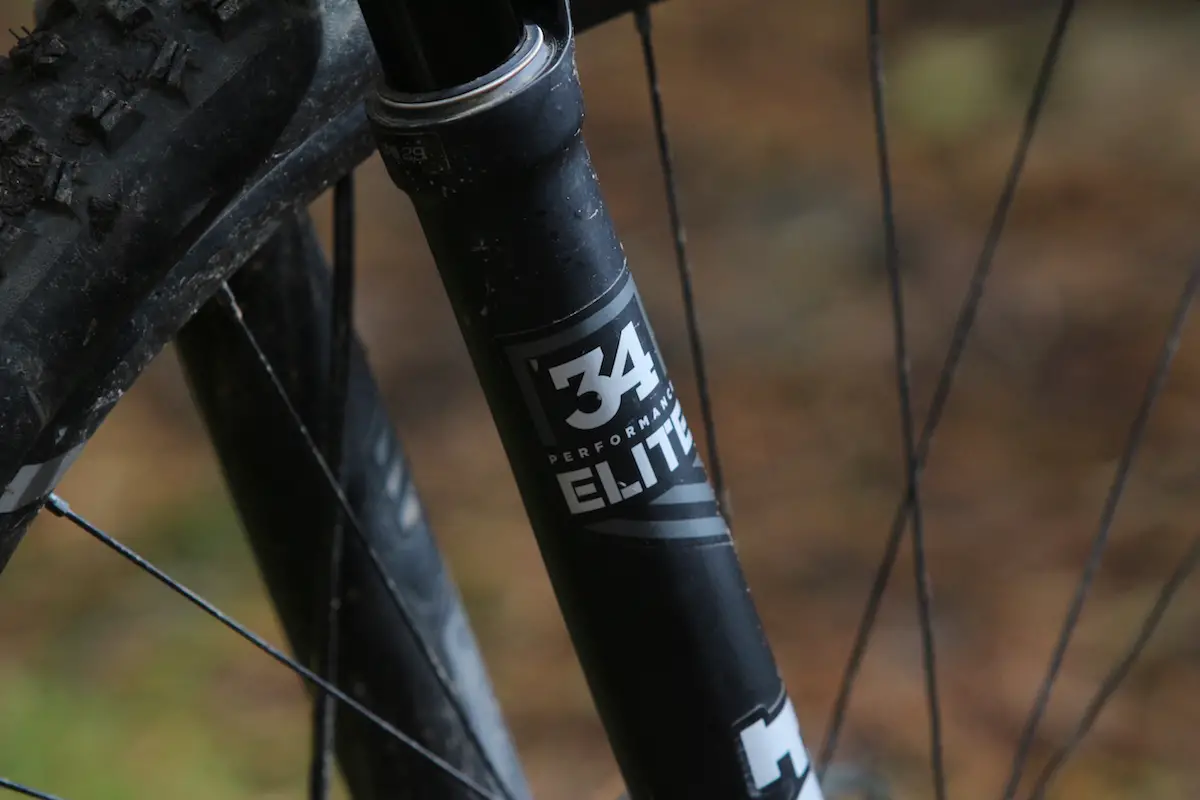
As such, riding loose, bouldery tracks requires a more careful approach than the current crop of long ‘n’ slack machines. The Neuron requires a fair bit of input to control and it’s easy to get out of shape. The aforementioned lightweight inner tubes also precipitate the odd enforced stop, unless you’re picking your way around the gnarl.
The Neuron feels skittish over jumps too, with the long stem and anti-squat suspension combining to pitch you forward. It’s something you could probably adapt your riding style to, or just swap the stem for a shorter one, but the overall impression is that this is a bike for folk who like to keep their wheels on the ground if possible.
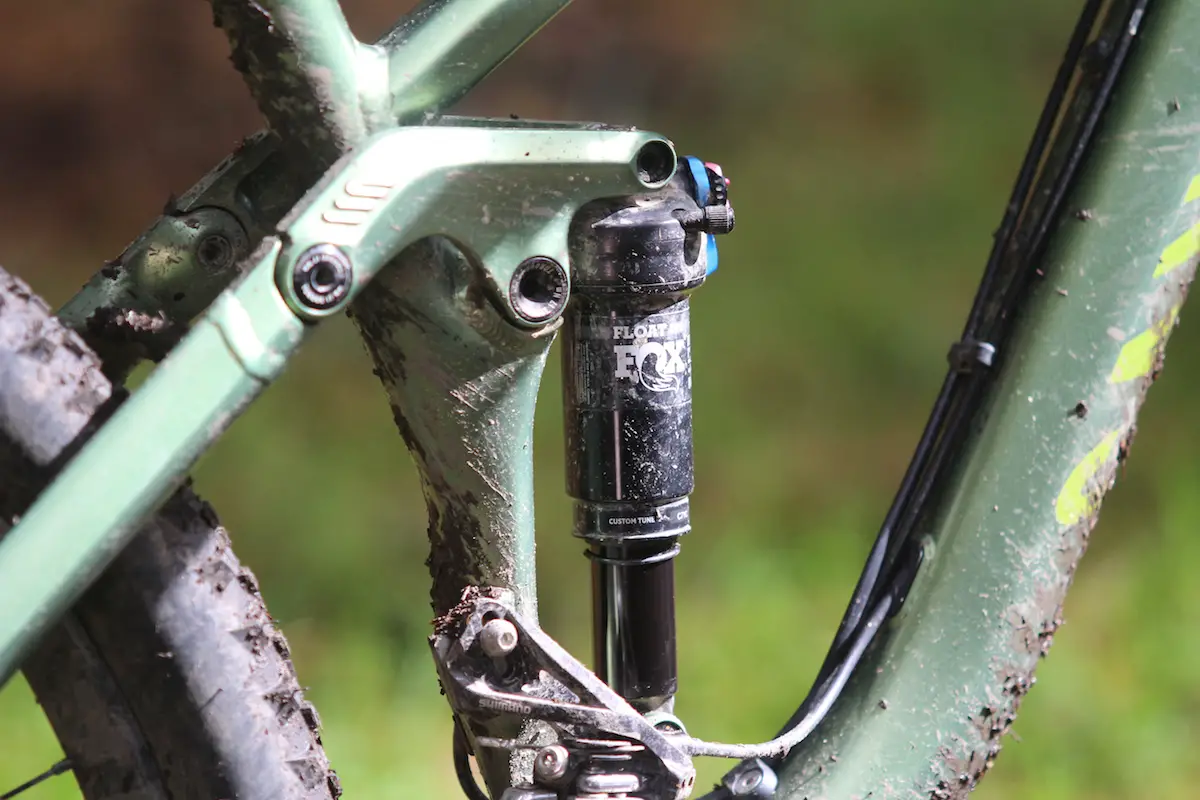
Durability Notes
For the most part, the Neuron performed valiantly from the short amount of time I had with it – as to be expected for the quality of the build kit. The only real issue I faced occurred with the back brake, which tended to pump up on the descents. Initially I suspected some air had sneaked into the lines, but as the issue came and went over time, I figured it was more likely the weird variable bite point issue we’ve encountered with some other XT and XTR brakes.
The alignment of the rear derailleur was slightly off, leading the chain to skip up the cassette if I backpedalled – although to be fair, the latter wasn’t an issue on the trail, and it’s something that’s easily adjusted. Worth noting is that our test bike had encountered its fair share of riding before we got our hands on it, so there’s every chance the rear mech had had a knock on it at some point in its lifetime. The gears otherwise performed flawlessly throughout testing, particularly the front mech that was slippery smooth when alternating between chainrings.
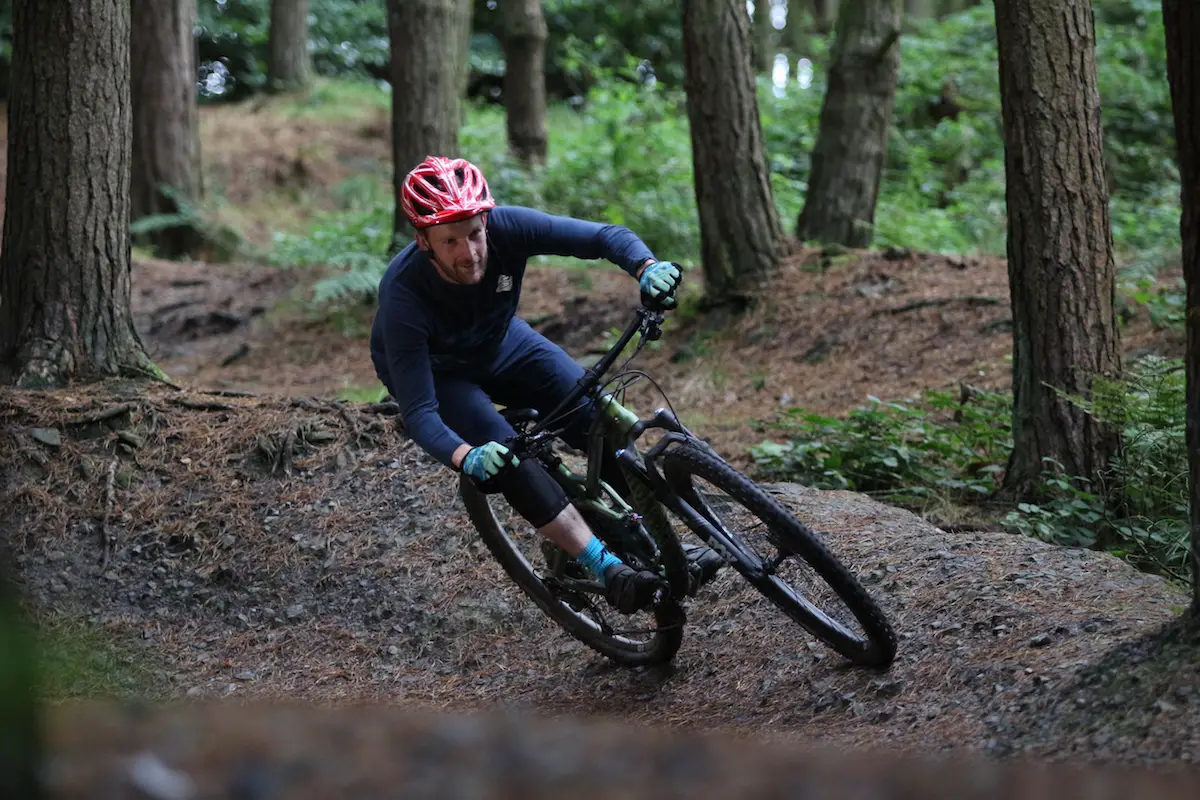
Three Things That Could Be Improved
- The geometry and suspension tune are a little too biased towards the uphills.
- Lightweight inner tubes aren’t great on rocky trails.
- The rear brake exhibited a weird ‘pumping up’ issue at the lever.
Three Things We Loved
- Efficient and well mannered on the climbs.
- You get a lot of quality parts for your cash.
- The finish of the bike is top notch.

Overall
Despite some misgivings I got on well with the Neuron. It’s the sort of marathon-style bike that lets you actually enjoy that technical climb that normally leaves you broken for the rest of a ride. Or volunteer to ride back up the last descent to check if a straggler is OK. There’s no denying though, that there are a lot of bikes out there that will leave it behind on the descents, while still getting you up the hills more than adequately – Canyon’s own Spectral, for one.
If, like Keith Bontrager no less, you’re not convinced by the benefits of modern geometry, you’ll love the Neuron’s quick handling and efficient pedalling. Personally I’m still not sure whether Canyon are keeping the Neuron in their line-up because riders want the option of a steeper, better climbing bike, or because they have a warehouse full of frames and shocks that they need to use up. It’s a great bike for covering lots of ground, but it needs careful piloting on more challenging terrain. There are cheaper models in the lineup that would make an amazing budget weapon for all-day rides or marathon-style events. But for the best part of two and a half large, I’d really prefer a bike that excels at everything.

Canyon Nerve AL 9.0 Specifications
- Frame // Hydroformed tubes, 110mm Travel
- Fork // Fox Performance Elite 34 Float, 120mm Travel
- Shock // Fox Performance Elite Float DPS LV
- Hubs // DT Swiss XM 1510 Spline One
- Rims // DT Swiss XM 1510 Spline One, 25mm width
- Tyres // Continental Mountain King II RaceSport 2.4, Continental X-King RaceSport 2.4
- Chainset // Shimano Deore XT
- Front Mech // Shimano Deore XT
- Rear Mech // Shimano Deore XT 11-speed
- Shifters // Shimano Deore XT 11-speed
- Cassette // Shimano Deore XT 11-speed, 11-42T
- Brakes // Shimano Deore XT
- Stem // Canyon V14, 70mm
- Bars // Canyon H13 Flat AL, 740mm
- Grips // Ergon GA30
- Seatpost // Rock Shox Reverb Stealth B1, 125mm travel
- Saddle // Fizik Tundra 2 MG
- Size Tested // Medium
- Sizes available // Medium, Large, X-Large
- Claimed weight // 12.8 kg (28.2 lbs)

